Nintendo circles the wagons as smartphone savages attack
The E3 game expo is just six weeks away and where Nintendo should have big visibility. Instead, today, the company president shares plans about greatly scaled-back presence, less than 24 hours after IDC warned that paying smartphone and tablet gamers will exceed their handheld counterparts this year.
For Microsoft and Sony, which have new consoles coming this year, E3 2013 will be big happenings. But not Nintendo. "We decided not to host a large-scale presentation targeted at everyone in the international audience where we announce new information as we did in the past", president Satoru Iwata says. "Instead, at the E3 show this year, we are planning to host a few smaller events that are specifically focused on our software lineup for the U.S. market".
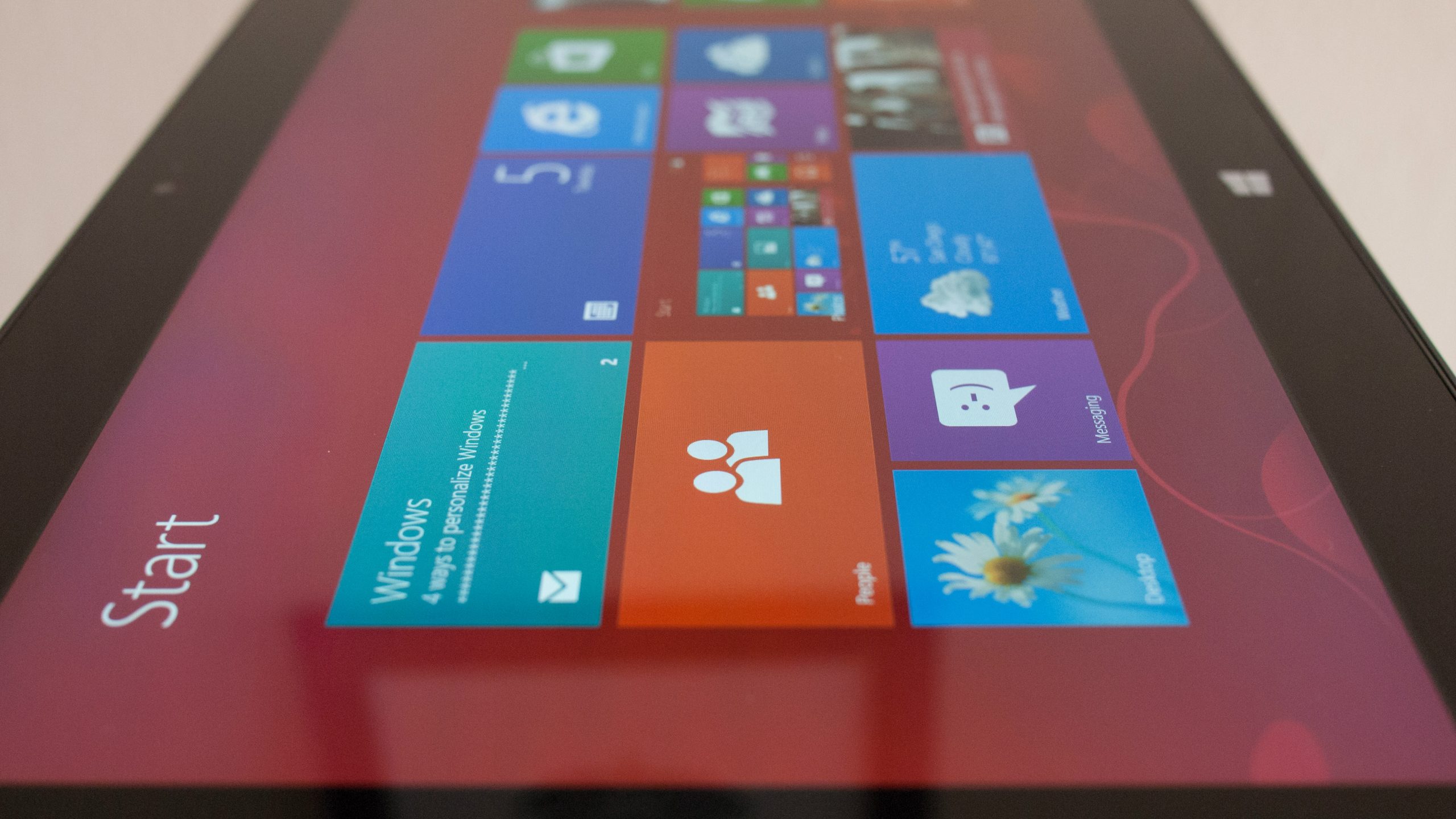
Windows tablets make big share gains
Back in December, I explained: "Surface RT sales are quite good, you just don't know about it". The Internet Idiocracy called the tablet a failure, while based on sales per store I saw success. Surface Pro shipped the following month. Now there are real numbers, and they're quite good -- for all Windows tablets -- validating touch-focused Modern UI.
During first quarter, Windows captured 7.5 percent global branded tablet market share, according to Strategy Analytics. That's up from zero a year earlier. Unit shipments: 3 million. Right now, Microsoft is the major seller of branded Windows tablets. Granted there are others, like Acer, ASUS, Dell, HP and Samsung.
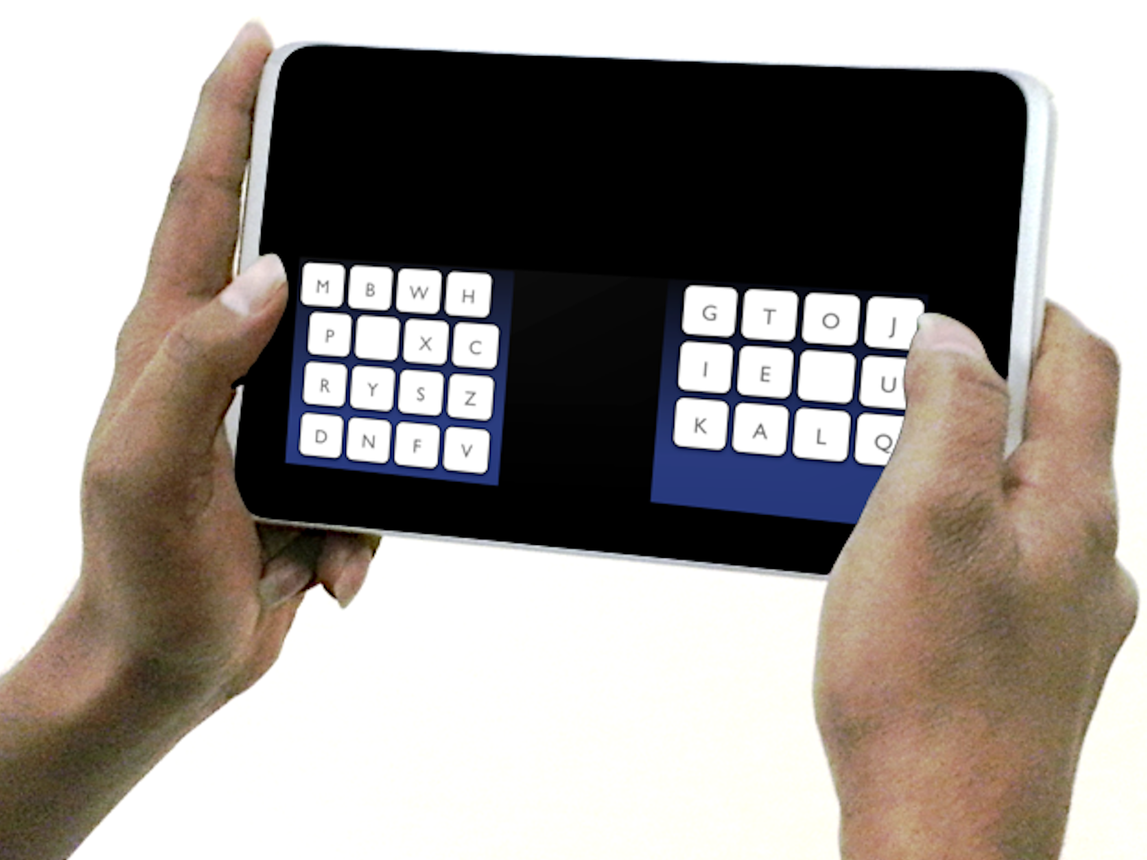
Forget QWERTY it's time for KALQ
Typing on touchscreen devices is very different from using a conventional keyboard and the traditional layout doesn’t help much. Researchers at the University of St Andrews, the Max Planck Institute for Informatics and Montana Tech have come up with a new layout that claims to allow tablet users to thumb type 34 percent faster.
Named KALQ after the order that the characters appear, it's been developed to provide optimal character positions when typing on a tablet. By spreading the characters used in commonly typed words such as "on", "see", "you" and "read" which on a QWERTY keyboard would all need to be typed with one thumb, KALQ speeds up typing and minimizes strain.
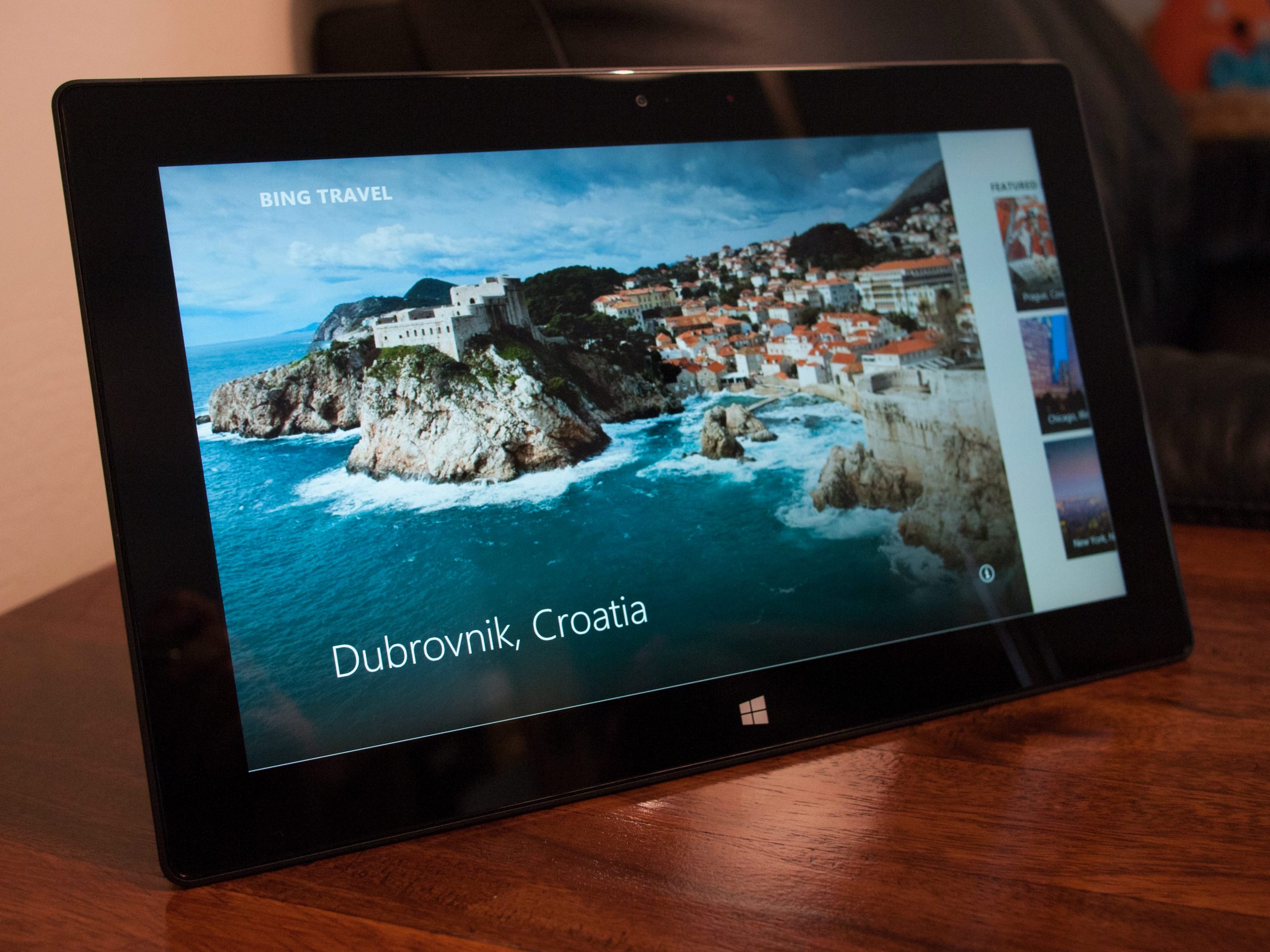
Surface Pro coming to the 'rest of the world' from next month
If you live outside of the US and Canada, you might have been wondering when -- or indeed if -- Microsoft's flagship Surface Pro tablet was going to appear in your part of the world.
It’s been all quiet on the Surface front for a while. Microsoft announced back in February that it would be broadening the availability of the RT version of its tablet, introducing it into 13 more European countries, but since then we haven’t had any other real news. That’s all about to change though, as Microsoft has finally delivered an update regarding worldwide availability for its Windows 8 Pro powered device.

Microsoft confirms smaller Windows 8 devices coming soon
During yesterday's earnings conference call, departing CFO Peter Klein says that Microsoft is "working closely with OEMs on a new suite of small touch devices powered by Windows. These devices will have competitive price points, partly enabled by our latest OEM offerings designed specifically for these smaller devices, and will be available in the coming months".
The rumors are true, and, presumably, because of the context Klein makes the statement, these devices will run Windows 8 -- rather than RT or Embedded. For example, he refers to support for new Intel processors, Haswell and Bay Trail Atom. The former is expected to ship with back-to-school ultrabooks and convertibles. The latter is designed for smaller touch devices, including tablets. During Intel's earnings call this week, CEO Paul Otellini predicted that for touch-screen notebooks running the new Atom processor, "prices are going to be down to as low as $200". Merry Christmas!
Do consumers really want touchscreen PCs? (Because I don't)
I own an iPad, which I love dearly. I use it for lots of things -- games, email, browsing the web, social networking, writing, viewing photos and video, and remote accessing my PC. The iPad, like all tablets, is a true jack of all trades and a master of some too.
But, try as I might, I can’t use it for "real" tasks. While it’s fine for writing small-ish articles on, I could never write a novel on it -- and I’ve tried. For some reason, I just can’t connect with typing on a touchscreen in the same way I do when typing on a proper full-size keyboard. And I could never imagine attempting detailed Photoshop work on a touchscreen either (well, not without a fine stylus at least).

Apple loses out to premium Android tablets
UK polling company YouGov has released the results of its latest Quarterly Tablet Tracker for the first three months of 2013. It shows that consumers now see Android tablets as equal in quality to the iPad and as a result their makers are eating into Apple's share of the premium market.
Although it still has the largest slice of the UK's tablet market, Apple has seen its share drop by 10 percent in the past 12 months. Despite the launch of the iPad Mini and 4th generation iPad, Apple now has 63 percent of the market compared to 73 percent this time last year.
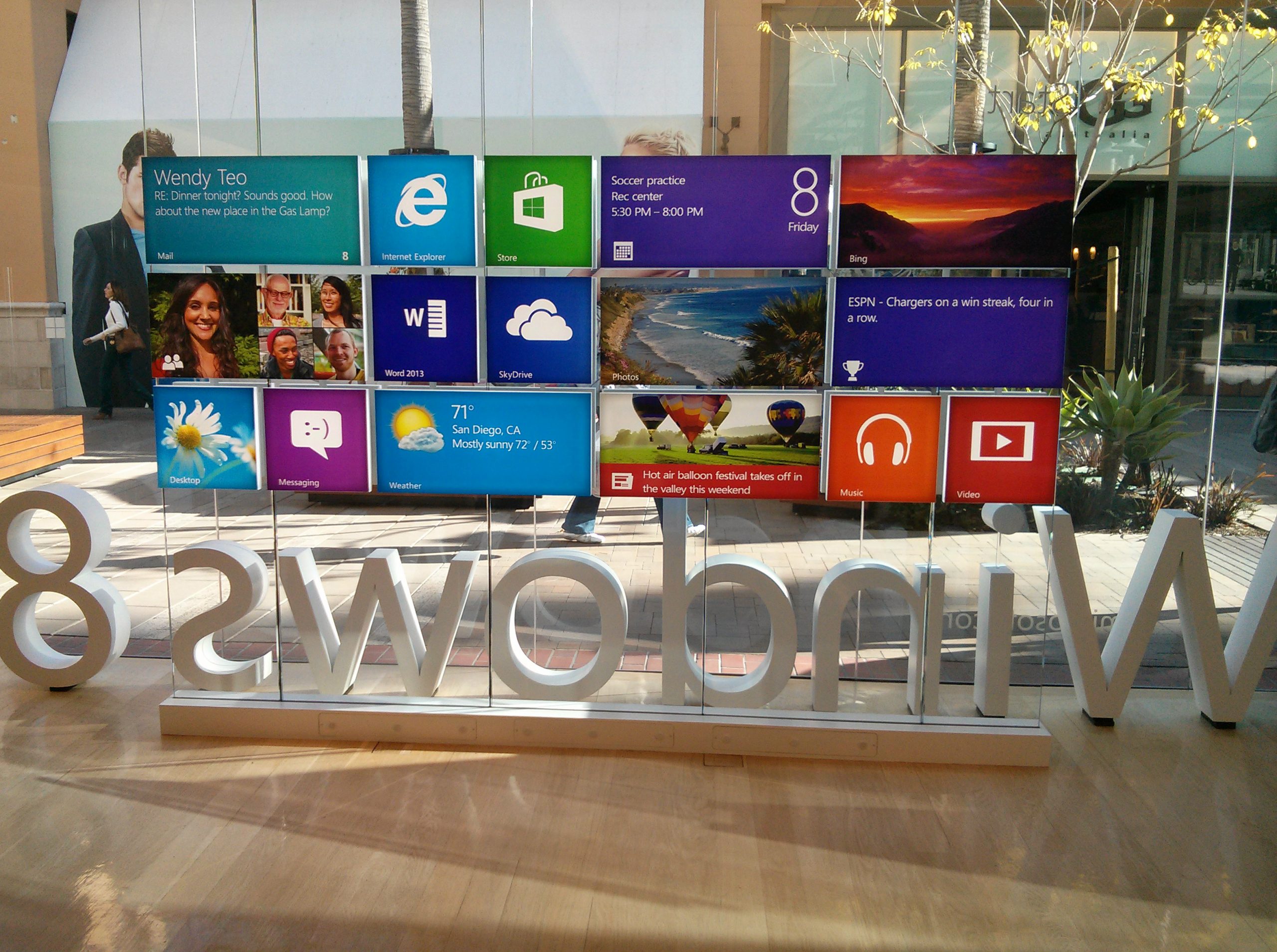
Don't blame Windows 8 for weak PC shipments
Well, well, perhaps Windows 8 isn't cause for all the PC market's woes, as IDC strongly stated yesterday. Gartner's first-quarter assessment is grim but no reaper. The analyst firm lays blame partly on consumers unwillingness to pay more for touchscreen models and asserts that the business market actually grows. Also, the firms released contradictory data, with Apple showing glaring and shocking differences.
Mikako Kitagawa, Gartner principal analyst, doesn't blame Windows 8: "Consumers are migrating content consumption from PCs to other connected devices, such as tablets and smartphones". The first factor pulling down PC shipments, which by Gartner estimates fell 11.2 percent globally during Q1, is tablet competition, then. Not Windows 8.

FU, Windows 8, PC shipment decline is worst EVER
In some alternate universe, Microsoft CEO Steve Ballmer slaps former Windows & Windows Live president Steven Sinofsky on the back for a job well done. The company's newest operating system is such a huge success that sagging PC shipments soared to record numbers. Our reality is something shockingly different. First-quarter declines are the worst since IDC started tabulating numbers in 1994 and surpass the worst estimates. You know things are really bad when even perennial gainer Apple sees a huge year-of-year fall off.
"At this point, unfortunately, it seems clear that the Windows 8 launch not only failed to provide a positive boost to the PC market, but appears to have slowed the market", Bob O'Donnell, IDC vice president, says. Holy Moley, Windows 8 slowed the market? You want to know why Ballmer booted Sinfosky out the door? O'Donnell offers chilling indictment.
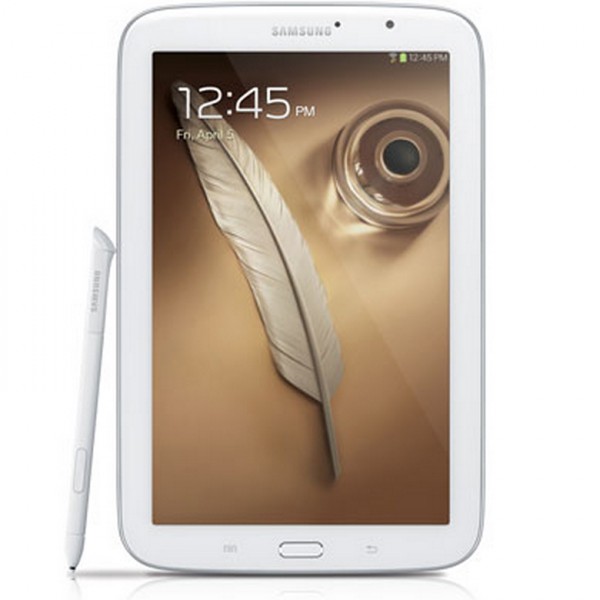
Samsung Galaxy Note 8 arrives April 11, but something's missing
What's wrong with Samsung? That's the question I asked in newsroom group chat today after seeing specs for Galaxy Note 8.0. Screen resolution diminishes the otherwise noteworthy feature list. Sorry, but 1280 by 800 is inadequate -- little more than matchup to Apple's iPad mini, which is similar size. For a company that makes such great-looking displays, lower-res is an endemic problem across Samsung's entire tablet line.
I really expected more from Galaxy Note 8.0, which as the same suggests has an 8-inch screen; iPad mini is 7.9. Samsung unveiled the tablet in February, and I wrote the news story. But in the rush of Mobile World Congress news didn't consider screen resolution, in part on possibility specs would change. The electronics giant has done it before, announcing one thing but shipping something slightly different months later.

The Apple-Google duopoly so dominates app downloads there is little room for BlackBerry and Windows Phone
Mobile app store downloads from the four major stores -- Apple, BlackBerry, Google and Microsoft -- reached 13.4 billion in first quarter, generating $2.2 billion revenue, according to Canalys. Combined, revenue from new sales, in-app purchases and subscriptions grew 9 percent from fourth quarter, while number of downloads climbed by 11 percent.
There are a half-dozen measures that mark successful platforms, with money being the most important. Developers typically go where they earn more. That's preface to a fascinating juxtaposition partly explaining developer preference for iOS, even though more Android devices ship and cumulative sales (750 million to 500 million) are larger. Google Play accounted for 51 percent of downloads during Q1. But Apple's App Store generated 74 percent of the revenue. Ponder those numbers for a moment.

Microsoft wins, even if the PC loses
I am simply stunned by the ridiculous number of "Microsoft will be dead in four years" stories, following Gartner's grim PC forecast three days ago. I offered brief analysis then and promised something later, and this is it. Yesterday, colleague Alan Buckingham posted first: "Microsoft is nowhere near death's door" -- and he absolutely is right.
Throw a rock, and you can't miss a doom-and-gloom armchair analysis. Among the many are "Gartner: Microsoft is dead, Windows has expired, Office has ceased to be" (Computerworld); "How long can Microsoft go on like this?" (InfoWorld); "Apple's ultimate victory over Microsoft" (Motley Fool); and "Gartner may be too scared to say it, but the PC is dead" (ReadWrite). For the most part, all these armchair pundits are mistaken. Hugely.
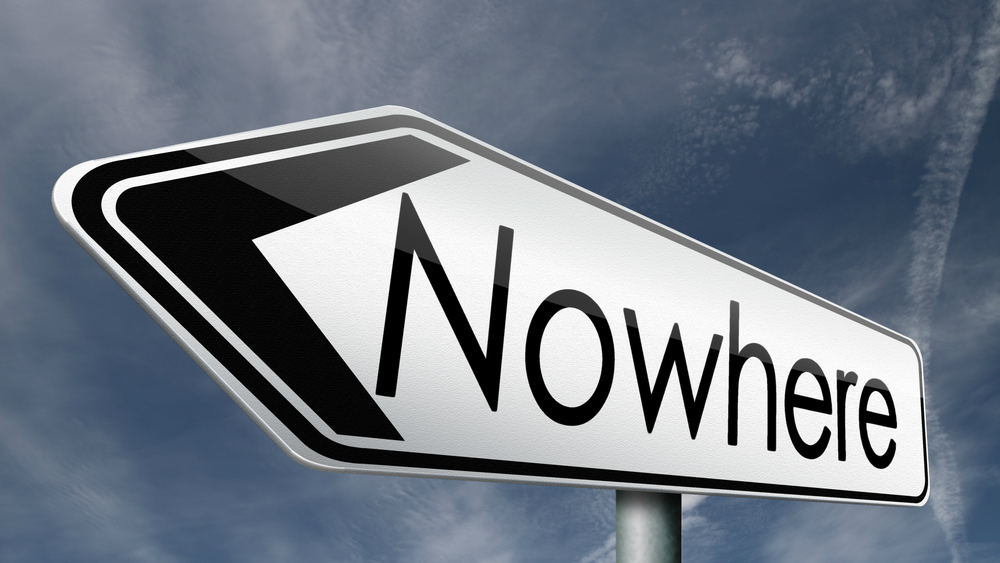
Microsoft is nowhere near death's door
I am both a Microsoft fanboy and hater, depending on which day I read comments from our BetaNews faithful. The truth be known, I consider myself neither. I would say it this way: I am a fanboy of what works and is useful to me and hater of everything on the opposite side of that line. I use products from many manufacturers, but yes, Microsoft powers all of my home computers, save the server, which is FreeBSD. Google is also a big part of my daily life, as is Adobe and many lesser-knowns.
For two days now, debate rages across the Internet about an analyst's content that Microsoft could be irrelevant within four years. I could do nothing but laugh when I read this. This revelation derives from Gartner report that states: "While there will be some individuals who retain both a personal PC and a tablet, especially those who use either or both for work and play, most will be satisfied with the experience they get from a tablet as their main computing device". Some individuals? By that, do you mean those who have jobs?
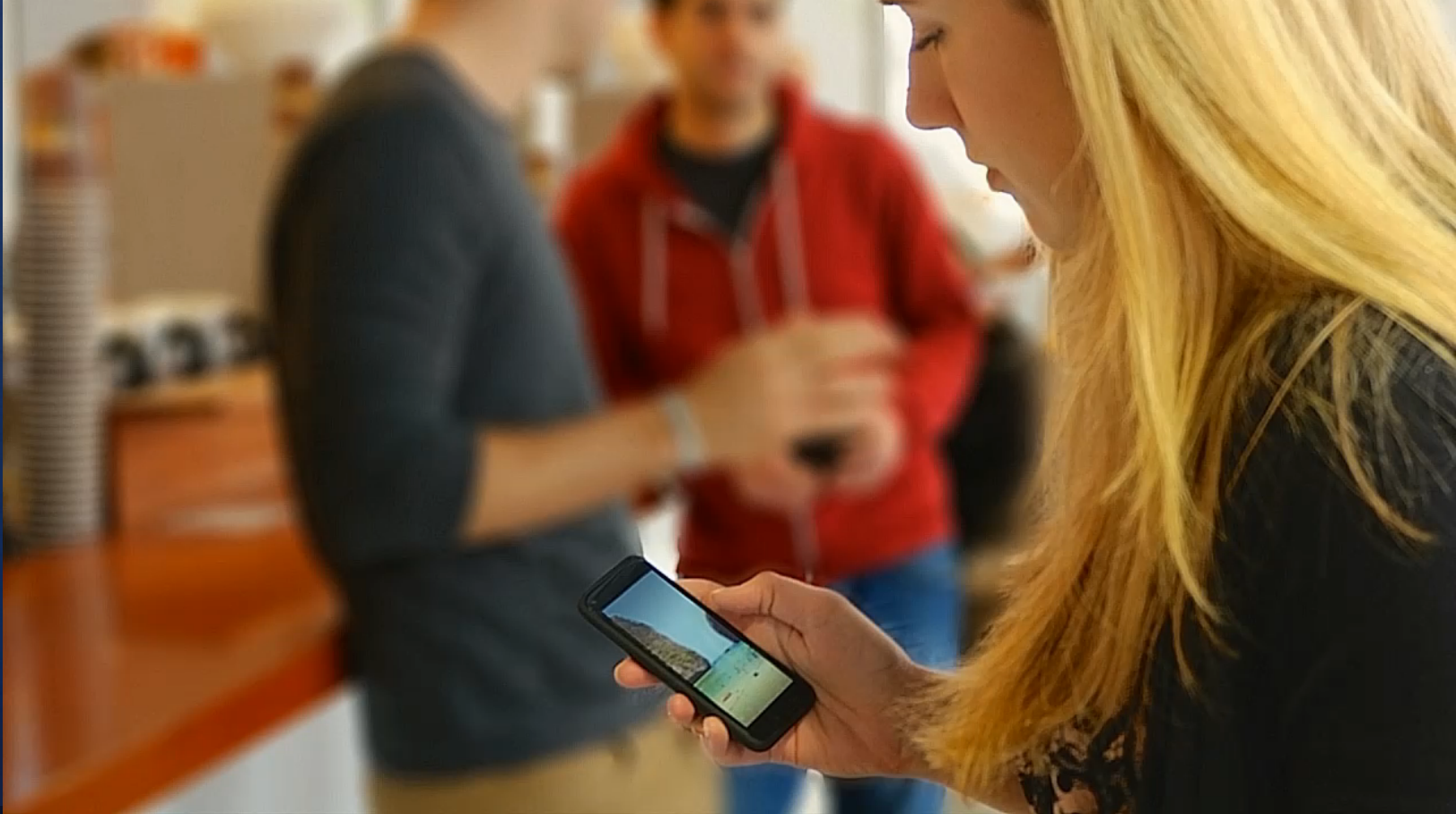
What Facebook Home means to Apple and Google
How important is Facebook really? The answer may come soon after April 12, when the social network releases Home to Google Play. The Android add-on usurps the homescreen, putting interactions/people first and pushes apps to the background. This, ah, Home invasion means potential trouble for Apple and Google, but in vastly different ways. Apps anchor both their platforms, curated content and the digital lifestyles users adopt. Facebook bets that between the choice of both ways, human relationships matter more.
For either the fruit-logo company or search and information giant, another question is perhaps more significant: Is Facebook's mobile experience already good enough? Related: Do most users want to be enmeshed in a constant stream of social updates and interactions most of the time? Affirmative answer to either, or both, spells trouble for the platform developers but most worrisome for Apple, for which Facebook Home affronts and condemns the entire business model.

Gartner says the PC has no future
Today, Gartner offers grim prognostications for the PC's future, which is not surprising. That the analyst firm took so long disturbs and reveals much about how all these consultants seek to preserve client contracts before anything else. I've warned for years that connected-devices would diminish the personal computer's relevance, much like the mainframe's decline three decades ago. The PC era is over, as I asserted here 26 months ago. On Halloween 2008, I asked in a Microsoft Watch post: "Will your next PC be a smartphone?" What took Gartner so long? The "new device religion" analysis still misses the mark, too.
Following IDC's lead, Gartner now combines PCs, smartphones and tablets into a single forecast. By that measure, in 2012, Android worldwide device shipments (497 million) exceeded Windows (346.5 million) and will more than double (to 1.07 billion) by 2014. Analysts warn the operating system that defined the PC era will struggle with Apple iOS and OS X to be the second dominant platform. By many measures, the circumstance looks grim for Microsoft and Windows, and that's already the popular sentiment today among blog posts and news stories about Gartner's forecast. Don't believe them.
